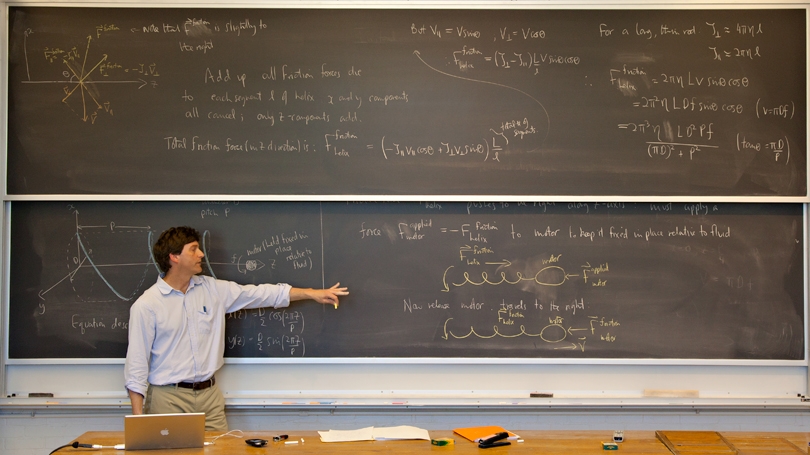As our knowledge of the physical world becomes deeper, more of it becomes amenable to mathematical formulation, and hence part of physics: for example, atoms used to be regarded as the domain of the chemist alone, while now atomic physics is at the core of the physics curriculum. Mathematics also advances, and becomes able to tackle problems previously thought to be beyond its scope. The great physicist Richard Feynman said in 1963 that he could not conceive of a mathematical description of a cloud, but at that very moment Benoit Mandelbrot was developing the mathematics of "fractals," which turned out to provide just that description. As a result, new branches of physics, such as condensed matter physics and non-linear dynamics, are continually coming into being, as are hybrids with other sciences, for example, chemical physics, geophysics, biophysics and psychophysics.
It has been truly said that without chemistry there would be no life: but without physics there would not be anything at all. The first half of the 20th century saw a revolution in physics, in which "classical" physics, which reigned supreme in 1900, was replaced in the domain of the very large by relativity and in that of the very small by quantum theory. This revolution was comparable in its philosophical implications to the great scientific revolution of the 17th Century (also, primarily, the work of physicists and astronomers). However, just as the latter did not significantly affect the consciousness of the general educated public until the following century, so the profound changes in our view of the world that this century's revolution requires, though the subject of much popular writing, have yet to be fully assimilated. Physics is not just a branch of technology but is one of the humanities, in the sense that its study is one road towards an understanding of our place in the Universe. This may be one reason why so many leaders in the struggle for freedom of thought have been physicists: Albert Einstein, Andrei Sakharov, Edward Condon, Yuri Orlov, Irina Ratushinskaya and Fang Lizhi, for example.
